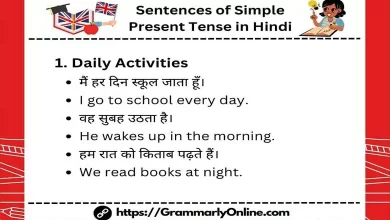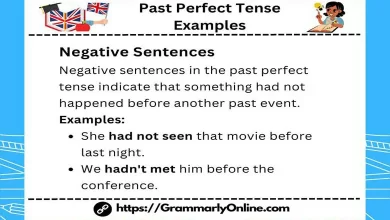Examples Of Present Perfect Tense
The present perfect tense is a crucial aspect of English grammar that combines the present tense with the perfect aspect. It is used to express actions that have occurred at an unspecified time before now. This article delves into various examples of the present perfect tense, providing a comprehensive understanding of its usage.
Understanding the Present Perfect Tense
The present perfect tense is formed using the auxiliary verb “have” (in present tense) plus the past participle of the main verb. The structure is as follows:
- Subject + have/has + past participle
Affirmative Sentences
Affirmative sentences in the present perfect tense are straightforward. Let’s look at some examples:
- I have visited Paris.
- This sentence means that at some point in the past, the speaker went to Paris, and the experience is relevant to the present.
- She has finished her homework.
- Here, it implies that she completed her homework recently or that it has some impact on the current situation.
Negative Sentences
Negative sentences in the present perfect tense include the word “not” after the auxiliary verb “have/has.” Here are examples:
- They have not (haven’t) seen that movie.
- This suggests that they did not watch the movie at any time up until now.
- He has not (hasn’t) eaten breakfast.
- This indicates that he has not eaten breakfast so far today.
Interrogative Sentences
To form questions in the present perfect tense, the auxiliary verb comes before the subject. Examples include:
- Have you ever been to Tokyo?
- This question asks if the person has had the experience of visiting Tokyo at any point in their life.
- Has she finished her project?
- This inquires if she has completed her project up to now.
Usage of the Present Perfect Tense
The present perfect tense is used in various contexts, such as:
Unspecified Time Before Now
The exact time is not mentioned, and the focus is on the action itself.
- I have read that book.
- She has traveled to many countries.
Experience
It is used to talk about life experiences without specifying the exact time.
- We have visited the Grand Canyon.
- He has never tried sushi.
Change Over Time
It shows a change or development that has occurred over a period.
- The city has grown rapidly.
- Her English has improved significantly.
Achievements
To highlight accomplishments at any time up to the present.
- Scientists have discovered a new planet.
- She has won several awards.
Actions with Relevance to the Present
Actions that happened in the past but have relevance to the present moment.
- I have lost my keys. (I can’t find them now)
- She has already left. (She is not here now)
Multiple Actions at Different Times
To describe repeated actions occurring at various times.
- We have visited our grandparents several times this year.
- He has played in many concerts.
Common Mistakes in Using the Present Perfect Tense
Using Specific Time Expressions
Avoid using specific time expressions like “yesterday,” “last year,” etc., with the present perfect tense.
- Incorrect: I have visited Paris last year.
- Correct: I visited Paris last year.
Confusing with Simple Past Tense
Do not confuse the present perfect tense with the simple past tense. The simple past is used for actions completed at a specific time in the past.
- Present Perfect: She has lived here for five years.
- Simple Past: She lived here for five years. (but not anymore)
Overuse of “Since” and “For”
While “since” and “for” are commonly used with the present perfect, ensure their correct application.
- Correct: I have known her since 2010.
- Correct: We have worked here for two months.
Practical Examples of Present Perfect Tense in Different Contexts
In Daily Conversations
- I have just finished my homework.
- She has already gone to the market.
In Professional Settings
- We have completed the project ahead of schedule.
- The team has achieved all its quarterly targets.
In Academic Writing
- Researchers have conducted several studies on this topic.
- Many scholars have debated this theory.
In Literature and Media
- The author has published numerous bestsellers.
- The movie has received critical acclaim.
In Technology and Innovation
- Technology has revolutionized the way we communicate.
- They have developed a new app for learning languages.
Conclusion
Mastering the present perfect tense is essential for conveying experiences, changes, and achievements effectively. By understanding its structure, uses, and common mistakes, one can communicate more clearly and accurately. The present perfect tense not only enriches your language but also enhances your ability to connect past actions with the present moment, making your communication more dynamic and engaging.

